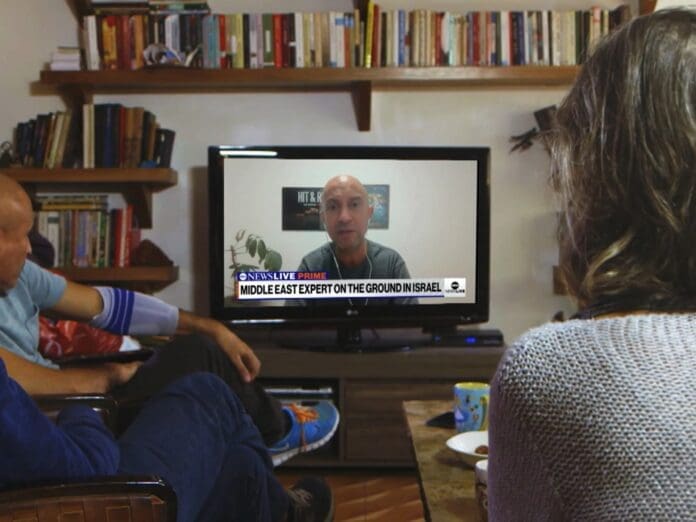The ongoing Palestinian-Israeli conflict, now in its second century, is being fought on two fronts. The first is the physical violence on the ground, which has escalated in recent weeks. The second front is the less visible but equally intense battle in the media and public information sphere in North America and Europe. In these arenas, Israel and its supporters are ramping up efforts to silence journalists who express pro-Palestine or balanced views with historical context.
Groups like the Committee for Accuracy in Middle East Reporting in America (CAMERA) and the Canary Mission, which have long sought to silence academics, activists, and journalists offering Palestinian perspectives, are now resorting to new tactics. They are targeting not just journalists’ reporting but also their social media opinions, sometimes going back years. This has resulted in the firing or suspension of several media professionals, including sports reporter Jackson Frank, who was fired for expressing support for the Palestinian cause on Twitter.
These efforts to stifle alternative viewpoints are happening alongside reports that some Western media companies are instructing their staff not to provide context for the Israeli war on Gaza or to downplay Palestinian casualties. This trend can be attributed to the long history of Western anti-Semitism and the overshadowing focus on Israel, rather than the Palestinians, in media coverage.
However, there is pushback against these tactics. Some media employers have shown support for their journalists who face accusations of bias or pro-Hamas sentiments. Journalists like Sara Yasin and Abdallah Fayyad have received backing from their management, debunking false claims against them.
Nonetheless, there is a prevalent culture of fear in newsrooms, where editors who lack expertise in Middle East affairs tend to align their coverage with the pro-Israel stance of the US State Department and White House. This fear is also evident in the exclusion of Palestinian American commentators from TV appearances or the non-airing of their pre-recorded commentary.
Despite these challenges, Arab Americans and progressive allies are mobilizing to protect constitutional rights, document instances of pressure and harassment, and draw attention to them. Organizations like Palestine Legal are monitoring incidents of anti-Palestinian harassment and censorship attempts, highlighting the heightened intimidation faced by advocates for Palestine.
The Arab and Middle Eastern Journalists Association has also expressed concern over bias and sidelining of journalists of Middle Eastern and North African descent. They condemn any targeting or isolation of journalists for offering honest coverage that goes against the preferred pro-Israel narrative. Additionally, they condemn attacks on journalists reporting from the ground, stating that it is a war crime.
In conclusion, the battle in the media sphere is increasingly challenging Zionist tactics to maintain a pro-Israel narrative in the US and the West. Advocates for balanced reporting are effectively checking and countering these efforts, marking a significant shift in the media landscape surrounding the Palestinian-Israeli conflict.
